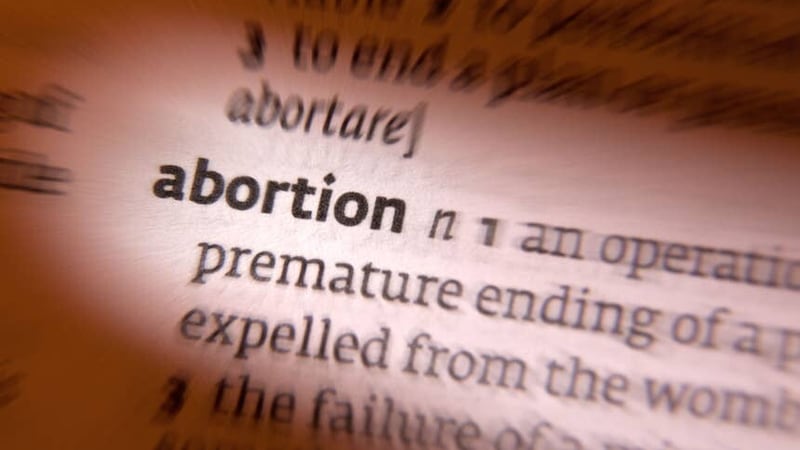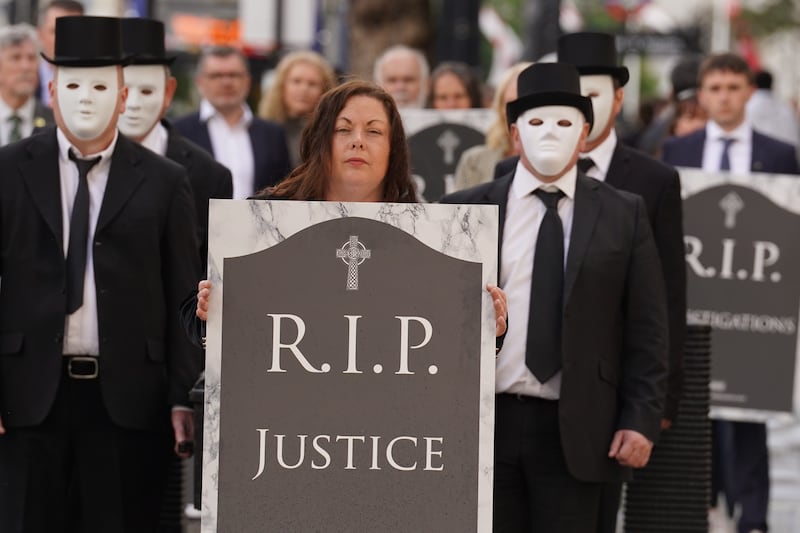Women’s rights groups have said there is “desperate need for legal reform” after a mother-of-three was jailed for illegally obtaining abortion tablets to end her pregnancy during lockdown.
Carla Foster, 44, was given a 28-month extended sentence after she admitted illegally procuring her own abortion when she was between 32 and 34 weeks pregnant.
Stoke-on-Trent Crown Court heard she was sent the drugs by the British Pregnancy Advisory Service (BPAS) after she called them during lockdown in 2020 and lied about how far along in her pregnancy she was.
The prosecution said Foster made a number of internet searches between February and May 2020, including “how to hide a pregnancy bump”, “how to have an abortion without going to the doctor” and “how to lose a baby at six months”.
Foster was initially charged with child destruction and pleaded not guilty.

She later pleaded guilty to an alternative charge of section 58 of the Offences Against the Person Act 1861, administering drugs or using instruments to procure abortion, which was accepted by the prosecution.
The sentencing has prompted a backlash from women’s groups, including the Centre for Women’s Justice (CWJ), with director Harriet Wistrich questioning how it was in the public interest to prosecute the mother.
She said: “What possible purpose is served in criminalising and imprisoning this woman, when at most she needs better access to healthcare and other support?
“She is clearly already traumatised by the experience and now her children will be left without their mother for over a year.
“When most forms of violence against women and girls go unpunished this sentence confirms our very worst fears about contemporary attitudes to women’s basic human rights and an utterly misdirected criminal justice system.”
Women’s human rights programme director at Amnesty International UK Chiara Capraro described the decision to prosecute over a law from 1861 as “shocking and quite frankly terrifying”.
She said: “Access to abortion is essential healthcare and should be managed as such.
“This is a tremendously sad story and underscores the desperate need for legal reform in relation to reproductive health.”
British Pregnancy Advisory Service (BPAS) chief executive Clare Murphy said “no woman can ever go through this again” and called for MPs to protect women in desperate circumstances so they are never threatened with prison.
She said: “Vulnerable women in the most incredibly difficult of circumstances deserve more from our legal system.”
The Crown Prosecution Service said the case was “complex and traumatic”, but added it has a “duty” to ensure laws are “properly considered and applied when making difficult charging decisions”.
A CPS spokesperson said: “The defendant pleaded guilty to one count of unlawfully administering a poison or noxious thing with intent to procure a miscarriage, and has now been sentenced by the court.”
Ahead of the sentencing, a letter was sent to the court from leaders of health organisations calling for a non-custodial sentence.
The letter from leaders of medical groups such as the Royal College of Midwives, the Royal College of Obstetricians and Gynaecologists, and the Faculty of Sexual & Reproductive Healthcare, warned that imprisoning Foster could put other women off accessing telemedical abortion services.
The letter also said it could put off late-gestation women from seeking medical care or from being open and honest with medical professionals.
In response, Mr Justice Pepperall said in his sentencing remarks it would have been better if “the letter had not been written at all.”
He said: “The letter also has the capacity to be seen as special pleading by those who favour wider access to abortions and is, in my judgment, just as inappropriate as it would be for a judge to receive a letter from one of the groups campaigning for more restrictive laws and which might seek to argue that it is important that the law is upheld by passing a deterrent sentence.”
The court heard Foster, who had three sons before becoming pregnant again in 2019, did not see a doctor about her pregnancy because she was “embarrassed” and did not know how far along she was, the court was told.
She spoke to a nurse practitioner at BPAS, an abortion care service, on May 6 2020 and, based on her answers to questions about her pregnancy, it was determined she was only around seven weeks pregnant and she was sent abortion pills in the post.
A post-mortem examination determined the child was between 32 and 34 weeks’ gestation when born.
Her cause of death was recorded as stillbirth and maternal use of abortion drugs.
Foster will serve 14 months in custody and the remainder on licence after her release.
Mr Justice Pepperall said: “This case concerns one woman’s tragic and unlawful decision to obtain a very late abortion.
“The balance struck by the law between a woman’s reproductive rights and the rights of her unborn foetus is an emotive and often controversial issue. That is, however, a matter for Parliament and not for the courts.”








